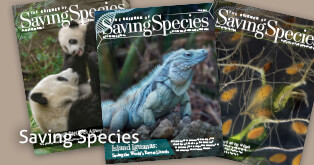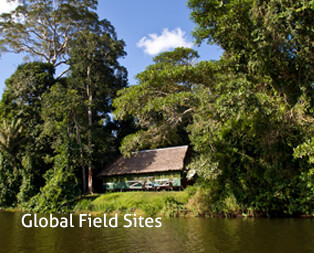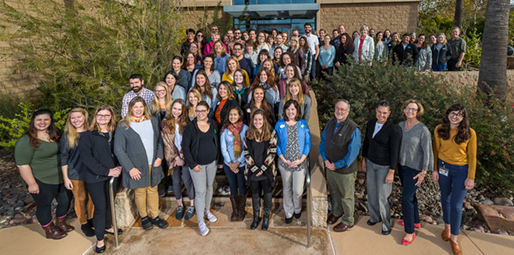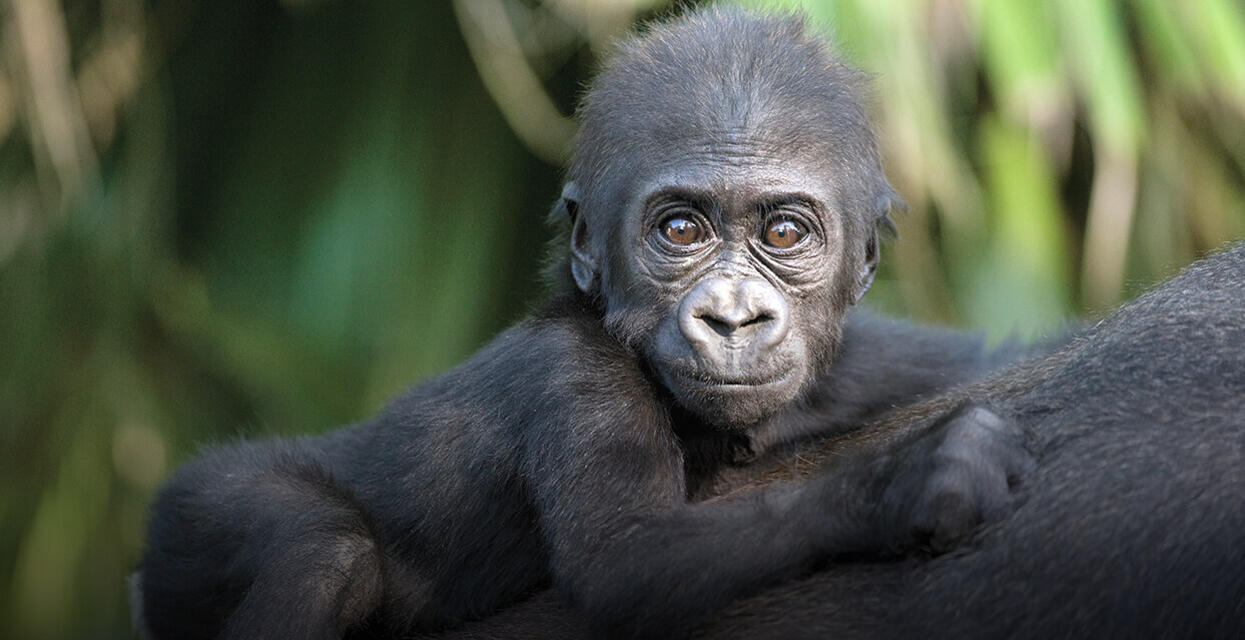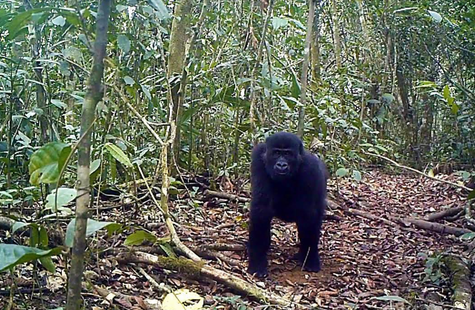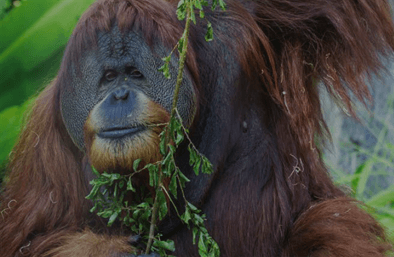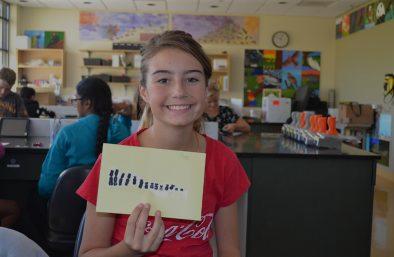Conservation Status: IUCN Red List - Critically Endangered
Threats to survival: Hunting for bush meat and trade in body parts; habitat destruction
Central Africa Program
San Diego Zoo Wildlife Alliance’s Central Africa Program conducts research and conservation regionally, within the Gulf of Guinea biodiversity hotspot, and locally within Cameroon’s proposed Ebo National Park, one of the largest and most ecologically intact rainforests remaining in Africa. Our work is facilitated by long-standing collaborative relationships with our partners, including multiple governmental ministries, national and international academic institutions, traditional authorities, and local communities. We have a research base in Limbe, as well as two permanently manned Ebo Forest Field Stations. Work during the past year has concentrated on consolidating our “Club des Amis des Gorilles” (Gorilla Guardian Clubs) in the communities surrounding the Ebo gorilla population. These clubs bring together traditional authorities, including community elders, in an effort to boost active, on-the-ground conservation, as well as instill a collective responsibility for and pride in the incredible biodiversity of the Ebo forest.
Understanding Genetic Diversity
In the lab, the aim of our Conservation Genetics team is to gather complete mitochondrial genomes from gorilla founder animals in the North American zoo population. With this information, we seek to address questions about the level of genetic diversity in zoos, the number of genetic lineages, and the presence of genetic structure and how it correlates with geographic data. This information assists with management by identifying maternal lineages represented in zoos, and allows us to avoid mixing of unique genetic groupings found in the wild. Also, this study may assist us in narrowing down the geographic origin of poached animals via genetic screening of specific markers, helping to identify areas of intense trafficking of wild populations or determine appropriate areas for repatriation of confiscated animals.
Hormones and Behavior
Guaranteeing the optimal environment and associated management for animals in zoos helps to maximize animal welfare. Identifying variables that influence stress in gorillas in captive settings by monitoring cortisol levels in connection with behavior allows our Population Sustainability team to ensure the highest level of care for animals within our collections.



